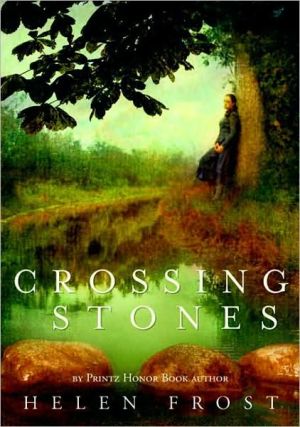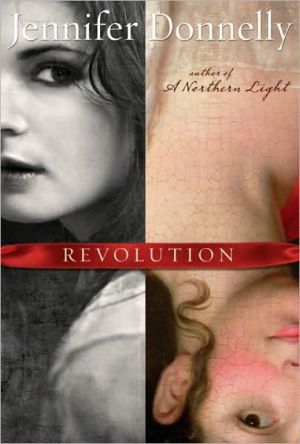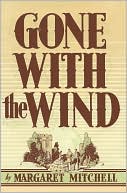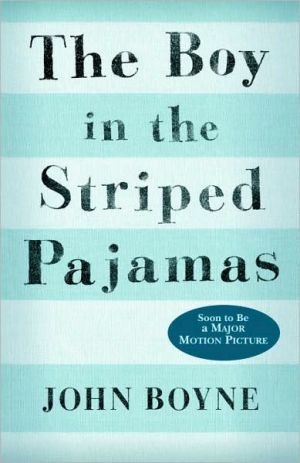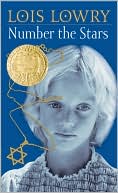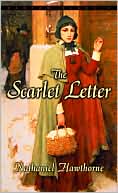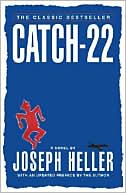Crossing Stones
Maybe you won’t rock a cradle, Muriel. Some women seem to prefer to rock the boat.\ Eighteen-year-old Muriel Jorgensen lives on one side of Crabapple Creek. Her family’s closest friends, the Normans, live on the other. For as long as Muriel can remember, the families’ lives have been intertwined, connected by the crossing stones that span the water. But now that Frank Norman—who Muriel is just beginning to think might be more than a friend—has enlisted to fight in World War I and her brother,...
Search in google:
Maybe you won’t rock a cradle, Muriel. Some women seem to prefer to rock the boat.Eighteen-year-old Muriel Jorgensen lives on one side of Crabapple Creek. Her family’s closest friends, the Normans, live on the other. For as long as Muriel can remember, the families’ lives have been intertwined, connected by the crossing stones that span the water. But now that Frank Norman—who Muriel is just beginning to think might be more than a friend—has enlisted to fight in World War I and her brother, Ollie, has lied about his age to join him, the future is uncertain. As Muriel tends to things at home with the help of Frank’s sister, Emma, she becomes more and more fascinated by the women’s suffrage movement, but she is surrounded by people who advise her to keep her opinions to herself. How can she find a way to care for those she loves while still remaining true to who she is?Written in beautifully structured verse, Crossing Stones captures nine months in the lives of two resilient families struggling to stay together and cross carefully, stone by stone, into a changing world.VOYABeautifully written in formally structured verse, Frost's story spans nine months from 1917 to 1918. Each of three characters' poems, with their own distinct rhyming schemes and visual shapes, tell about their lives growing up in two families living on either side of a creek in rural Michigan. Muriel has just graduated from high school and dreams of something more. Her slightly older friend and neighbor, Frank, has finished basic training and is sent to Europe to fight in World War I; her younger brother Ollie lies about his age so he can enlist and join Frank; and her best friend Emma, Frank's sister, is content to some day become a wife. To help her suffragette aunt recover after being in jail, Muriel travels to Washington DC, and a whole new world is opened up to her, one in which she can make a difference. Although warned by family to be careful with voicing her opinions, Muriel learns that sometimes it takes protesting and education to help effect change. Frost deals with many issues, including the horrors and experiences associated with war: death, mutilation, separation, how the home front coped; gender roles and women's suffrage; the Spanish influenza outbreak; and discovering what to do with one's life. At the end in "Notes on the Form," Frost explains the formal structure of each person's verse, which is amazingly done. This beautifully written, gently told story can be used for classroom discussion in social studies and English, or simply for leisure reading. Reviewer: Jane Van Wiemokly
\ From the Publisher“The distinct voices of the characters lend immediacy and crispness to a story of young people forced to grow up too fast.” —Starred, Horn Book\ “Frost skillfully pulls her characters back from stereotype with their poignant, private, individual voices and nuanced questions, which will hit home with contemporary teens, about how to recover from loss and build a joyful, rewarding future in an unsettled world.”—Starred, Booklist\ “With care and precision, Frost deftly turns plainspoken conversations and the internal monologues of her characters into stunning poems that combine to present three unique and thoughtful perspectives on war, family, love and loss. Heartbreaking yet ultimately hopeful, this is one to savor.”—Starred, Kirkus Reviews\ “Frost’s warmly sentimental novel covers a lot of political, social, and geographical ground . . . . But this is Muriel’s story, and her determined personality and independence will resonate with readers.” —School Library Journal\ “A thoughtful read.” —Bulletin of the Center for Children’s Books\ “Both a great story and a perfectly-worded poetic work of art.” —Richie’s Picks “This beautifully written, gently told story can be used for classroom discussion in social studies and English, or simply for leisure reading.” —VOYA\ \ \ \ \ \ VOYA\ - Jane Van Wiemokly\ Beautifully written in formally structured verse, Frost's story spans nine months from 1917 to 1918. Each of three characters' poems, with their own distinct rhyming schemes and visual shapes, tell about their lives growing up in two families living on either side of a creek in rural Michigan. Muriel has just graduated from high school and dreams of something more. Her slightly older friend and neighbor, Frank, has finished basic training and is sent to Europe to fight in World War I; her younger brother Ollie lies about his age so he can enlist and join Frank; and her best friend Emma, Frank's sister, is content to some day become a wife. To help her suffragette aunt recover after being in jail, Muriel travels to Washington DC, and a whole new world is opened up to her, one in which she can make a difference. Although warned by family to be careful with voicing her opinions, Muriel learns that sometimes it takes protesting and education to help effect change. Frost deals with many issues, including the horrors and experiences associated with war: death, mutilation, separation, how the home front coped; gender roles and women's suffrage; the Spanish influenza outbreak; and discovering what to do with one's life. At the end in "Notes on the Form," Frost explains the formal structure of each person's verse, which is amazingly done. This beautifully written, gently told story can be used for classroom discussion in social studies and English, or simply for leisure reading. Reviewer: Jane Van Wiemokly\ \ \ School Library JournalGr 6–10—The children of the Norman and Jorgensen families have grown up together, with their family farms located on either side of Crabapple Creek. In 1917, the outbreak of World War I shatters their idyllic lives: strong-willed Muriel opposes it, but the two young men, Frank and her brother, Ollie, enlist and are soon sent overseas. Muriel's lively personality comes alive in free-verse poems that roam across the page like the free-flowing waters of the creek. "My mind sets off at a gallop/down that twisty road, flashes by 'Young Lady,'/hears the accusation in it—as if it's/a crime just being young, and 'lady'/is what anyone can see I'll never be/…." The poems of Ollie and friend Emma are written in "cupped-hand" sonnets; their rounded shapes resemble the crossing stones of the creek and record their growing love. While the young men find themselves amidst the horrors of trench warfare, their families attempt to cope with their absence. Muriel travels to Washington, DC, to be with her aunt Vera, a suffragist who is recovering from a hunger strike; joins picketers at the White House; and helps out in a settlement house. Back home, youngest sister Grace comes down with influenza. Frost's warmly sentimental novel covers a lot of political, social, and geographical ground, and some of the supporting characters are not fully fleshed out. But this is Muriel's story, and her determined personality and independence will resonate with readers, especially those who've enjoyed the works of Karen Hesse.—Marilyn Taniguchi, Beverly Hills Public Library, CA\ \ \ \ \ Kirkus ReviewsThis gorgeous collection of "cupped-hand" sonnets tells the story of two families whose lives are forever changed by World War I. Perhaps the most poignant poems, flowing like rushing water across the pages, are those from 18-year-old Muriel's point of view. Outspoken Muriel questions the war and finds herself drawn more and more to her Aunt Vera's suffragist cause. Other poems, shaped like river stones, are written from Muriel's brother Ollie's and her friend Emma's perspectives. Ollie's poems chronicle his brief experience in the war before an injury brings him home, and Emma's point up the great loss her family has felt since her brother, Frank, was killed in the war. Both Emma's and Ollie's poems also reveal the tender feelings of first love blossoming between them. With care and precision, Frost deftly turns plainspoken conversations and the internal monologues of her characters into stunning poems that combine to present three unique and thoughtful perspectives on war, family, love and loss. Heartbreaking yet ultimately hopeful, this is one to savor. (notes on form) (Historical fiction/poetry. 12 & up)\ \
